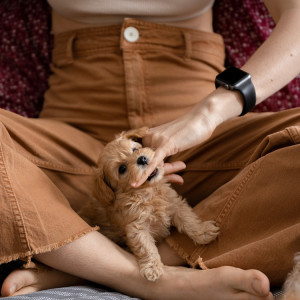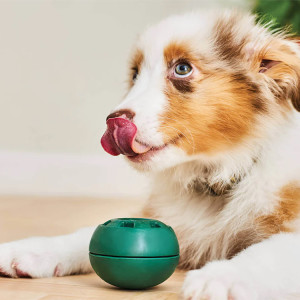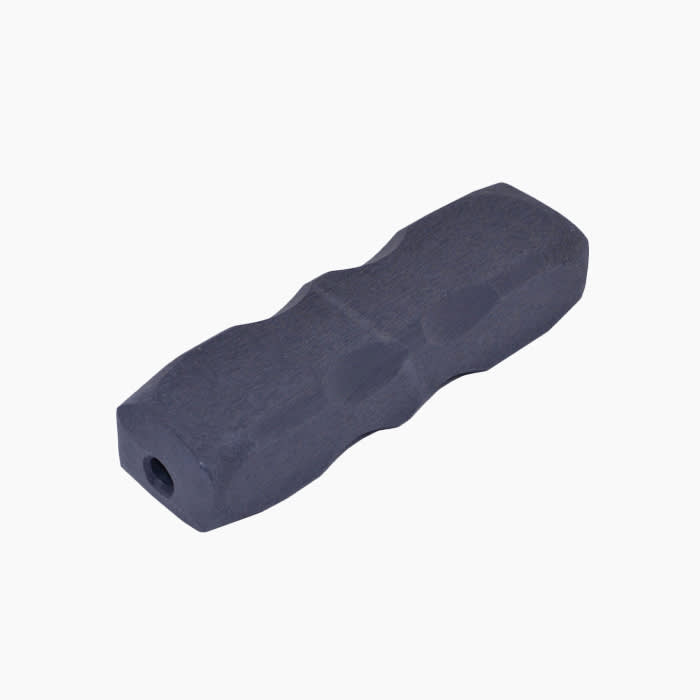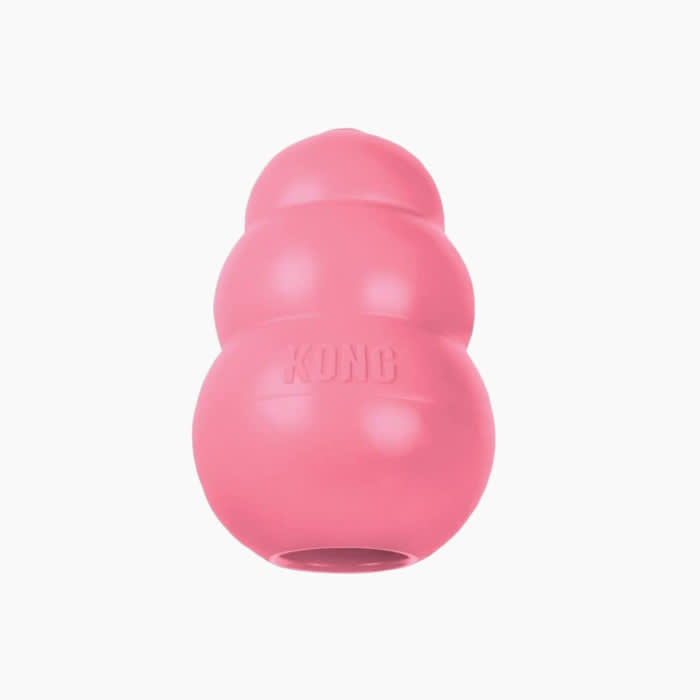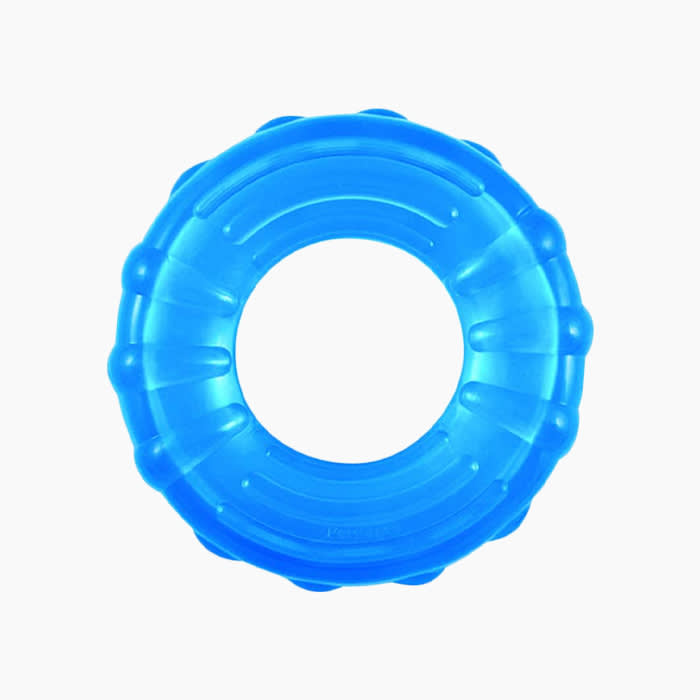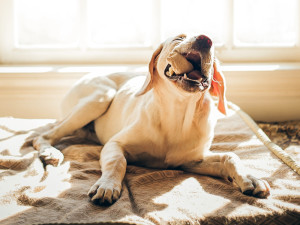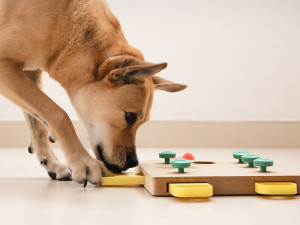What to Do (and Not Do) When Your Puppy is Teething
When those little razors start biting, keep these tips in mind
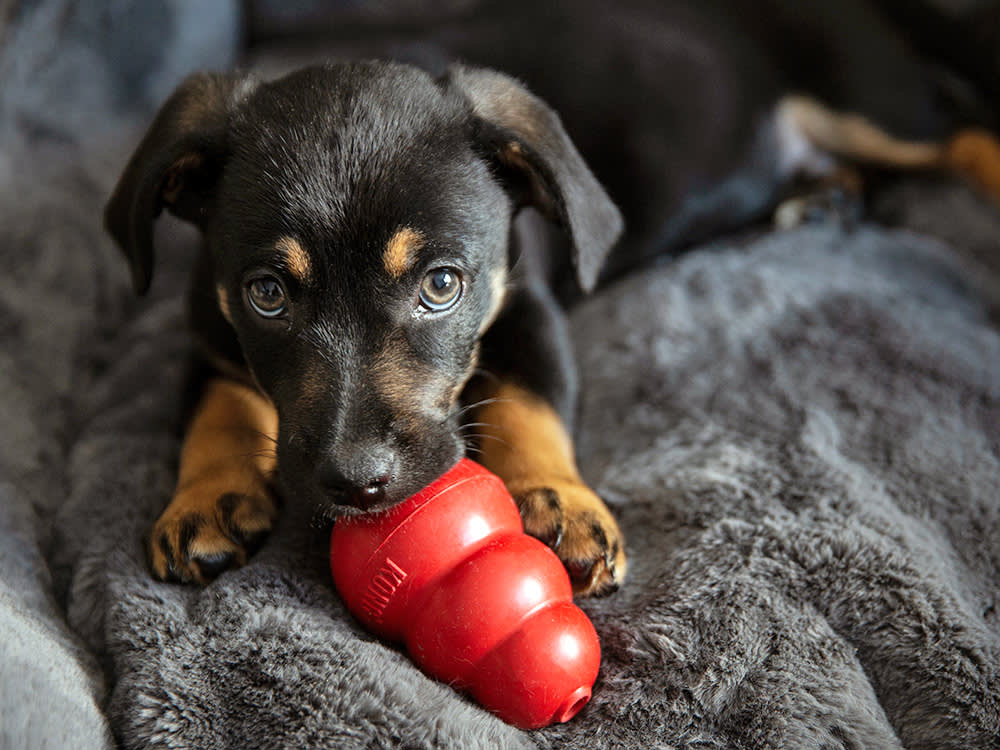
Share Article
There’s truly nothing better than a puppy. But they’re not so fun when they’re biting us – and if this is happening with your puppy, you’re not alone. A biting puppy isn’t the same thing as an aggressive puppy, which is a common misconception. (Yes, puppies can be aggressive, but 98 percent of the time I’ve found it’s not the case.) Puppies play and communicate with their mouths, and biting can also feel really good to them. Unfortunately, being on the receiving end of those little shark teeth doesn’t feel as good to us.
Honestly, this teething stage – along with house-training – can be one of the most frustrating things about the adorable puppy months. So let’s go over how to minimise puppy biting right from the start.
Basic management
I don’t let my puppies free roam the house until they prove they won’t have an accident and won’t be chewing on household objects. If your pup is sneaking off and chewing on table legs and other items, it’s time to keep them tethered to you until this behaviour stops.
Keep a toy rotation
Boredom is another cause of destructive chewing. Puppies are active by nature. Ensure you’re doing a mix of training and activity, as well as providing a mix of mental enrichment toys and games daily – plus some safe puppy play dates. I rotate the puppy-safe toys in my house to keep the dogs busy and prevent boredom from setting in.
Present them with an appropriate item
When you catch your dog chewing on something they shouldn’t, like the furniture or perhaps you, tell them ‘no’ and get an appropriate item for them to chew. Make this item exciting; you can drag it on the ground, squeak it or throw it.
But we should also keep an eye on what they’re chewing because there might be a reason why they’ve chosen that object. Maybe it feels good on their gums and new teeth. If that’s the case, make a trade for a similar-feeling object. If they’re chewing clothes or socks, I’ll get a soft toy or a soft tug toy.
Whenever you are selecting a toy or something permissible for a puppy or an adult dog to play with or chew, consider the safety of their teeth. The enamel on dog’s teeth is much thinner than the enamel on human teeth and is therefore much more easily damaged. Therefore, if you wouldn’t bite down on something then neither should your dog. A a rule, you should choose rubberised toys or rope toys. Edible chews or chew toys need to be able to flex, if the item is too hard when the dog bites on it, it will sadly be the dog’s tooth that gets damaged and not the item. This way of thinking also applies to sticks, stones, bones and antlers, all of which are too hard and can cause teeth to fracture so supervision to ensure they don’t pick them up when out and about is essential.
Reward, reward, reward
Don’t forget to reward correct chew choices. If they’re chewing an appropriate toy, either on their own or because you gave it to them, it’s important to tell them how good they are. Unfortunately, humans often overlook the positive reinforcement aspect of chewing. Remind yourself to praise good chewing behaviour.
Watch the clock
A puppy might also get mouthy when they’re tired or hungry. It just might be that it’s close to feeding time or that the puppy needs a nap. Pay attention to the times of day when this seems to happen, so that you can plan ahead. For example, do they always get excited and go crazy at 4pm? If so, at 3:45pm I would get out the fun toys or go for a walk and help them expel some of that energy in more acceptable ways. The more we make other play a good habit, the more predictable and harmonious our life with the puppy will be.
How we play matters
We should talk about play, too. Play is great and healthy for puppies and dogs of all ages. By making toys rewarding and fun, we can encourage play with appropriate objects. I have some puppy-safe toys easily available to my puppies at all times.
I’m also careful of my mannerisms when playing with puppies, especially mouthy ones. Avoid playing with your hands or letting your dog bite them during play. Even if the bites are gentle and playful, allowing any hand biting at all can confuse the puppy. You don’t want your puppy to grow up thinking they can bite someone’s hands, even for play. This could be harmful to small children or older people.
In those moments when your dog’s biting is getting out of control, run through this checklist
Do they need to go outside?
Are they overly tired? Due for a nap?
Have they gotten enough mental stimulation today? And if not, is it time for a few minutes of training or to give them a mental enrichment toy?
Is there a behaviour I can ask for to get them to focus, such as sitting on a mat patiently?
Can I give them a puppy-safe toy or a chew that will keep them occupied and fulfil that need to chew?
Toy suggestions
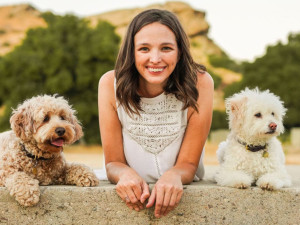
Nicole Ellis, CPDT-KA
After a childhood of horse-riding and pet obsession, Nicole Ellis studied with top animal trainers working with everything from exotic animals, such as bears and big cats, to household pets. During her studies, she realized her true mission was training other humans in strengthening their human-pet bonds. Alongside her rescue Bichon / Poodle mix, Maggie, she uses positive reinforcement training to teach pets new skills and healthy behaviors. Ellis stars as a celebrity dog trainer on The Pack (Amazon Prime) and travels to hospitals and nonprofit orgs with Maggie to educate. Maggie was also was the inspiration behind Ellis’s book, Working Like a Dogopens in new tab.
Related articles
![training dog chewing blanket]()
Why Does My Dog Chew On Blankets?
A (seemingly) unstoppable nibbling obsession with all the blankets
![Bullmastiff puppy chewing on a purple ring chew toy]()
11 Tough Toys for Power Chewers
Veterinary behaviourist Dr Valli Parthasarathy recommends the most durable dog toys for destructive players
![Golden Retriever dog chewing on rawhide toy seated on a blanket by a window]()
Rawhide Is a Raw Deal
The six dangers of rawhide dog bones
![Dog looking for treats in an interactive dog puzzle toy]()
Interactive Dog Puzzle Toys
Let the games begin

